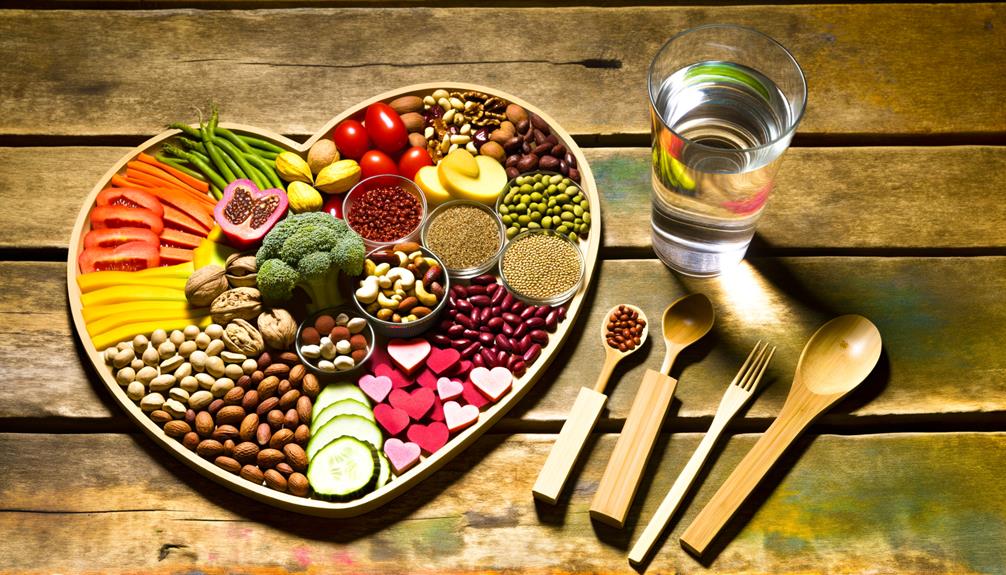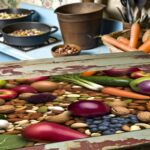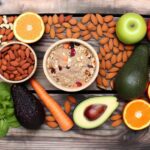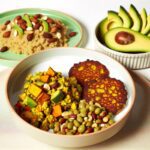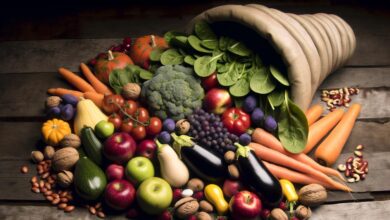When Beyoncé and Jay-Z embraced a plant-based diet to improve their health, the world took notice of the potential benefits such a lifestyle can have on reducing cholesterol levels. You’re likely aware that excess cholesterol is a ticking time bomb for heart health, but you may not realize how much power you wield with your fork and knife. Expertly crafted, a plant-based meal plan isn’t just a kaleidoscope of colors and flavors—it’s your cultural passport to a world of diverse, nutrient-rich foods that can help keep your arteries clear and your heart beating strong. Imagine savoring a Thai-inspired quinoa salad, rich with the crunch of fresh vegetables and the zing of ginger, or a comforting bowl of lentil soup that warms you from the inside out. As you explore how delectable heart-friendly foods can be, consider how these choices impact not only your cholesterol levels but also your overall well-being. Stay with me as we uncover how simple swaps and delicious additions to your daily routine can transform your health in the most unexpected and delightful ways.
Key Takeaways
- Plant-based diets can effectively reduce cholesterol levels.
- Including fruits, vegetables, leafy greens, and whole grains in a plant-based meal plan is essential for lowering cholesterol.
- Plant-based protein sources such as vegetarian chili, veggie burgers, chickpea pasta, and black beans can contribute to managing cholesterol levels.
- Regularly tracking cholesterol levels and making adjustments to the meal plan can help optimize heart health.
Understanding Plant-Based Nutrition
Delving into plant-based nutrition, you’ll discover a world where sumptuous flavors meet heart-healthy benefits, all while keeping your cholesterol levels in check. The cornerstone of this vibrant culinary tradition is an abundance of fruits and vegetables, brimming with soluble fiber, which acts as a natural cholesterol-lowering agent. As you embrace this lifestyle, you’ll find that leafy greens, with their rich nutrient profile, become daily staples, and whole grains serve as the hearty foundation of every meal.
In your journey, you’ll understand that a meal high in fiber isn’t just a health choice—it’s a mosaic of taste and sustenance. Imagine the robustness of a vegetarian chili, its beans offering both plant-based protein and fiber, or the satisfying bite of a veggie burger that rivals any meat-based counterpart in both flavor and heart protection.
Cholesterol-Friendly Foods List
Building on the foundation of plant-based nutrition, let’s explore a selection of cholesterol-friendly foods that blend cultural flair with the power of nutrients to keep your heart healthy and your palate delighted. These dishes are not only low in saturated fat but also free of cholesterol, which can lower cholesterol levels and reduce the risk of heart disease.
| Dish | Key Ingredient | Heart Health Benefit |
|---|---|---|
| Chickpea Pasta with Mushrooms & Kale | Chickpeas | High in protein and fiber, lowers LDL cholesterol |
| Butternut Squash & Black Bean Enchiladas | Black Beans | Rich in plant-based protein, helps manage bad cholesterol |
| Red Lentil Soup with Saffron | Red Lentils | Packed with protein and fiber, aids in Lowering Cholesterol |
Each of these meals offers a unique twist on traditional cuisines while being nutrient-focused and flavorful. The chickpea pasta stands out with its earthy mushrooms and lush kale, marrying texture with taste. Enchiladas filled with butternut squash and black beans offer a hearty, comforting embrace, while the red lentil soup with a hint of saffron brings warmth with every spoonful. These soups and entrees are ideal for those who seek to serve others with dishes that are as kind to the heart as they are to the taste buds.
Weekly Vegan Meal Strategies
Craft your own weekly vegan meal plan that celebrates the diversity of flavors and the nutritional power of plant-based ingredients, starting with a heart-healthy, fiber-rich chickpea pasta dish to kick off the week. This delicious meal could help lower total cholesterol and protect against coronary artery disease.
As you plan your meals, keep these strategies in mind:
- Mix & Match: Combine different foods to ensure a variety of nutrients.
- Plan Ahead: Prepare some components in advance to make meal assembly quick and easy.
- Consult Experts: Speak with a registered dietitian to tailor your meal plan to your specific health needs.
For example, a Butternut Squash & Black Bean Enchiladas dish midweek can be both a cultural exploration and a flavorful way to serve your body with vitamins and plant-based protein. Balance your meals with a hearty Red Lentil Soup, known for aiding in cholesterol management.
Don’t forget to include satisfying lunch options like a Chickpea & Quinoa Grain Bowl—perfect for customization and packed with protein. Start your mornings with whole grain toast topped with avocado or a nutrient-dense green smoothie.
Cooking Tips for Heart Health
As you savor the variety and nutritional richness of your vegan meals, let’s explore how cooking techniques can amplify the heart health benefits of your diet. With a focus on cultural adaptation, you’ll find that the methods you use to prepare your food can significantly lower your cholesterol and enhance your heart’s well-being.
| Ingredient | Cooking Style | Heart Health Benefit |
|---|---|---|
| Legumes | Steamed | High in fiber to reduce cholesterol |
| Whole Grains | Boiled | Lowers risk of heart disease |
| Avocados | Sliced Fresh | Healthy fats to support heart function |
| Leafy Greens | Lightly Sautéed | Rich in vitamin C and antioxidants |
| Purple Vegetables | Roasted | Contains anthocyanins for vascular health |
When considering heart-healthy meals, think quick and easy. Swap out traditional scrambled eggs for a tofu scramble, tossing in plenty of spinach and tomatoes to boost vitamin C and serve with roasted sweet potatoes for a comforting, nutritious start to your day.
Monitoring Progress and Adjustments
Regularly tracking your cholesterol levels is a crucial step in customizing your plant-based meal plan for optimal heart health. After 40 days or so, check in with your healthcare provider to assess your progress. If you’ve found that people who dine with you are enjoying the meals too, that’s a bonus! Depending on your results, you might need to make some adjustments to keep your heart happy and your plate full of flavor.
When tweaking your plan, consider these nutrient-packed additions:
- Sweet Potato: Perfect as a side or main in one or two of your weekly lunch or dinner menus.
- Brussels Sprouts: Roast them for a deliciously crispy and hearty addition.
- Black Beans: Include them in veggie burgers or as a fiber-rich topping on salads.
Frequently Asked Questions
Can You Lower Cholesterol With Plant-Based Diet?
Yes, you can lower cholesterol by embracing a diet rich in heart-healthy fats, fiber, antioxidants, soy protein, and whole grains. Nutrient-dense snacks and flavorful dishes make lifestyle integration delicious and fulfilling.
What Is the Number One Vegetable to Lower Cholesterol?
Spinach tops the list for cholesterol-lowering veggies, packed with soluble fiber and nutrients. Add it to your oatmeal breakfast or avocado salads for a nutrient-rich, flavorful boost to your heart-healthy diet.
What Foods Drastically Reduce Cholesterol?
Imagine your body as a garden; oatmeal breakfasts seed your day, almond snacks sprinkle nutrients, while soy protein, avocado toast, and olive oil nurture growth. Flaxseed additions and walnut crunch enrich the soil, berry smoothies rain antioxidants.
What Vegans Should Eat to Lower Cholesterol?
To lower cholesterol, you should eat fiber-rich grains, cholesterol-free legumes, and nuts for heart health. Include vegan omega-3 sources, soy protein, sterol-enriched foods, and savor green tea antioxidants and dark chocolate flavonoids.
